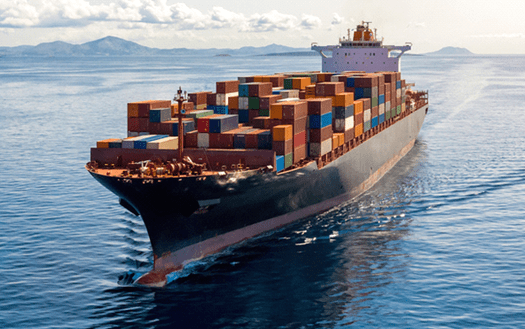By Kizito CUDJOE
A new report by three Africa-focused policy organisations warns that a proposed global carbon levy on maritime shipping could have severe economic consequences for African countries, exacerbating food insecurity and driving up the cost of living if implemented without adequate safeguards.
The report, titled ‘Navigating Climate Action: Assessing the Economic Impacts and Trade-offs of a Shipping Carbon Tax for African States’, was released by the Africa Policy Research Institute (APRI), Firoz Lalji Institute for Africa at the London School of Economics and Political Science (LSE) and African Future Policies Hub (AFPH).
The report emerges in context of the International Maritime Organisation’s (IMO) commitment to reducing shipping emissions to net zero by 2050.
While decarbonisation of the shipping industry is seen as essential for global climate goals, the report notes significant concerns for African economies – which rely heavily on maritime trade. Without measures to cushion the impacts on developing regions like Africa, the proposed carbon tax could amplify existing economic vulnerabilities, the report says.
Using the Global Trade Analysis Project Energy-Environmental (GTAP-E) Computable General Equilibrium (CGE) model, the report assesses potential economic impacts of the shipping levy on African countries.
The findings suggest that the levy will disproportionately affect African countries by raising freight costs, leading to higher prices for essential goods. According to the report, maritime shipping services within Africa could decline by as much as 7 percent while global prices for agricultural and processed food commodities could rise by 0.011 percent and 0.013 percent respectively.
These price increases are expected to have a direct impact on food security, as many African countries depend heavily on imported food. “Almost 90 percent of Africa’s global trade is conducted by sea.
This heavy reliance on shipping makes African nations particularly vulnerable to shifts in the maritime sector,” said Faten Aggad, Executive Director-African Future Policies Hub (AFPH).
In addition to food security concerns, the report highlights broader economic strain the levy could place on African households. Countries like Ghana could see household incomes fall by 0.101 percent; a drop ten times greater than that forecast for European households under the same levy.
The economic imbalances exacerbated by this carbon tax will most likely deepen existing disparities between developed and developing nations, with African countries shouldering a disproportionate burden of the global transition to net-zero emissions.
The report also highlights structural imbalances in freight costs that are likely to worsen under the levy. African nations already face higher shipping costs due to smaller trade volumes, less developed infrastructure and weaker negotiating power in global shipping markets.
A carbon levy without targetted compensation or adjustments for developing economies would, according to the report, only widen this gap.
To mitigate these risks, the report offers a series of recommendations for the IMO and global policymakers. Central among them is a call for the IMO to ensure a significant portion of revenues raised by the carbon levy is directed toward funding out-of-sector mitigation and resilience measures in line with the ‘polluter pays’ principle.
The report argues that revenue distribution should consider factors such as a country’s exposure to climate risks, economic context, fiscal space and contribution to global greenhouse gas emissions.
The report’s authors emphasise that while decarbonising the shipping industry is inevitable, it must be done in a way which does not unfairly shift the burden onto vulnerable African nations. “Ensuring that the transition to a net-zero shipping sector does not come at the expense of African citizens is crucial.
African countries must engage with the issue, understanding both the risks and opportunities – particularly areas like investment in green hydrogen and maritime shipping fuels,” Aggad stated.
The report’s release is part of an ongoing effort to promote equitable climate action that balances the global need for decarbonisaation with economic realities of developing regions. It calls on African governments to actively participate in international negotiations, advocating for mechanisms that redistribute the financial burden of decarbonisation from vulnerable nations to major polluters.
The report was funded by the Climate Emergency Collaboration Group (CECG) and Ocean Conservancy and reflects collective efforts of APRI, Firoz Lalji Institute for Africa at LSE and AFPH.










